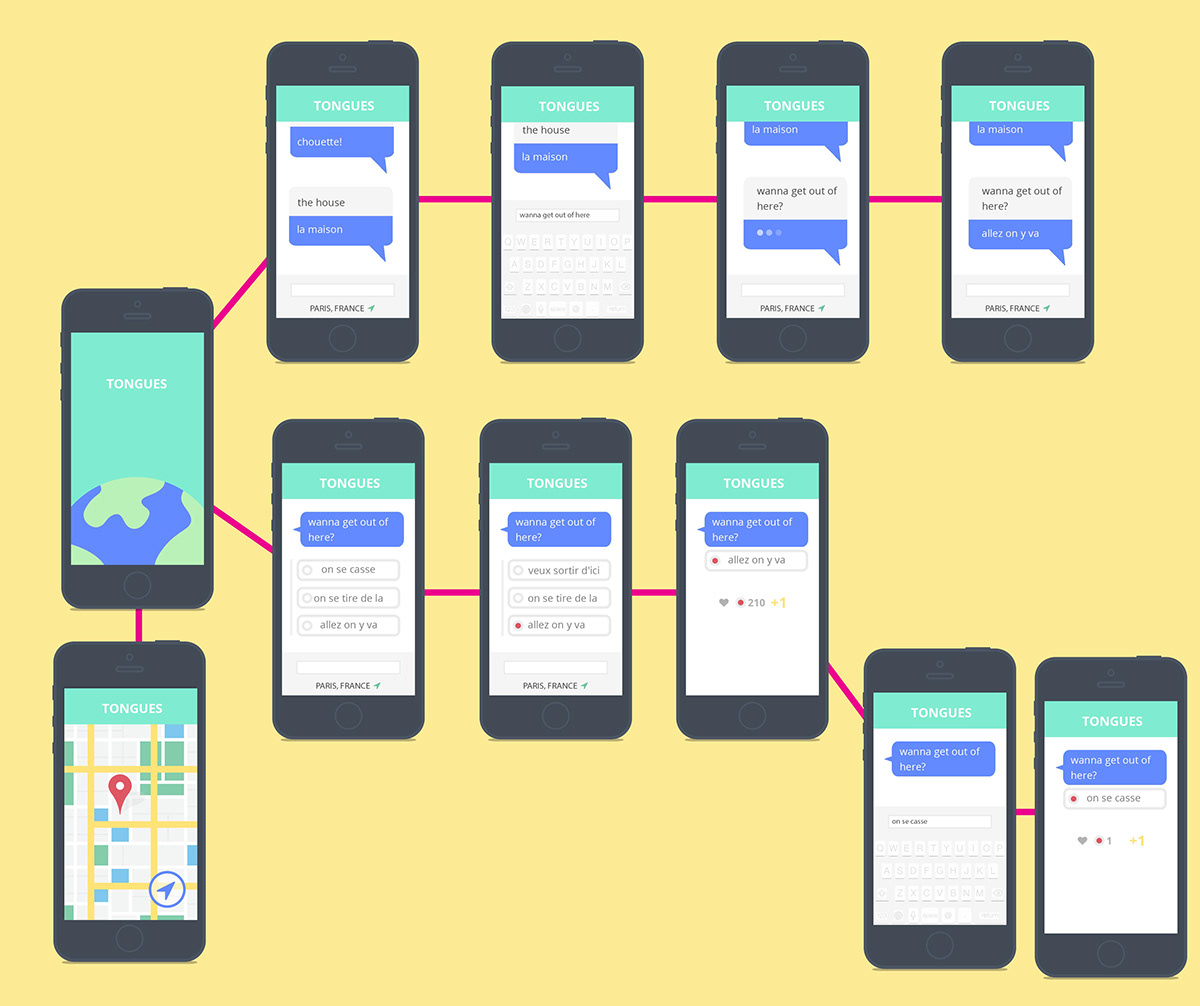Our goal was to create something that would help people communicate casually, even when they didn't know the same language. For most people, the solution to this problem is either by using the service of a professional translator, which is usually inefficient, expensive, and not suited for casual conversation, or a machine translation system like Google Translate - which is usually inaccurate and often incomprehensible.
To start off, we conducted user studies with people who have different interactions with foreign languages - avid language learners, students in foreign countries, and people who travelled a lot. We learned that people value being able to converse intimately with different people, and often put in a lot of effort to try good conversation, even when they don't fully know a language. We also learned that people love understanding colloquialisms and "inside jokes" within a language speaking group, and also feel left out when they're in a group of foreign language speakers who can speak casually and colloquially with one other.
We started off by trying to create an application that would use crowdsourcing to help people find translations for sentences they actually want to use. To motivate people to translate, we framed the "translating" aspect as a language-learning game that would help students practice their "informal" language use.

Based on intial user testing and feedback, we decided to reframe our design. We focused our app as something that would help people get translations or equivalents for only colloquial, informal, or fun phrases. For translators, the motivation would be through "upvoting" translations that they found funny or relevant. We chose this new angle because we noted in our feedback and user studies that people love interacting with things that are both funny and relevant to their lives, even if they provide no immediate personal benefit.
Concept Video for Tongues
Our final application used a combination of motivation techniques for translators, including both the idea of being funny and relevant and having immediate feedback through scores and gamification. Ultimately, our mobile app has two sides to play with: an "asker" side, where you can ask for translations, and a "translator" side, where you can upvote translations, input your own, and level up.
We developed several iterations of the UI, and are currently in the process of building an interactable hi-fi prototype to experiment with the more physical aspects of our application: how can we ensure smooth visual and interaction experiences? How can we make sure people aren't tired or frustrated by our application? How can we use UI elements to make our application seem both fun and useful?



By Ishita Prasad, Alex Wu & Anna Yelizarova at Stanford University


